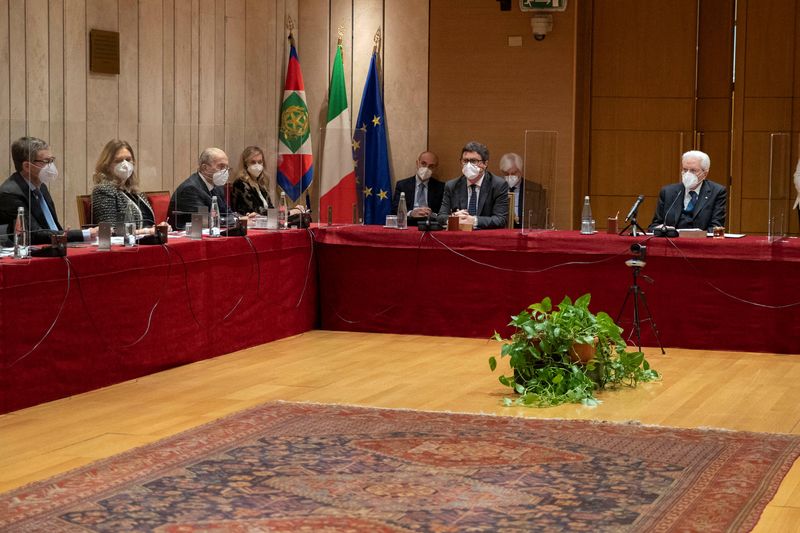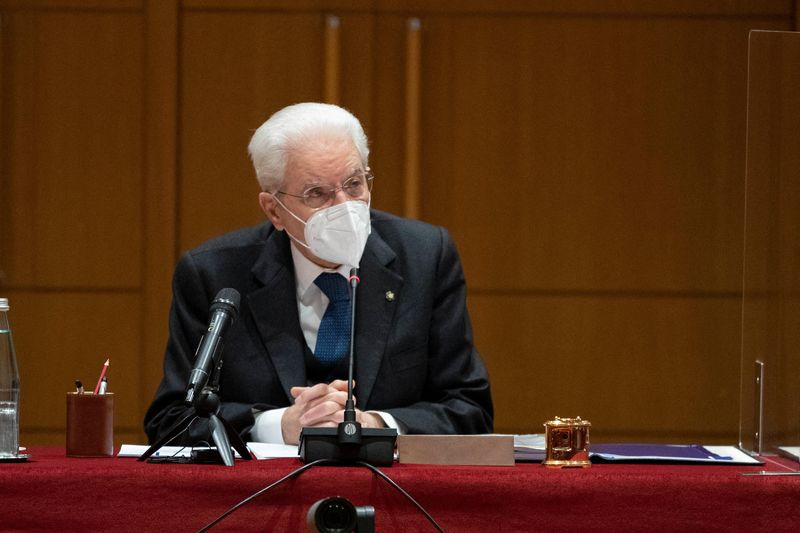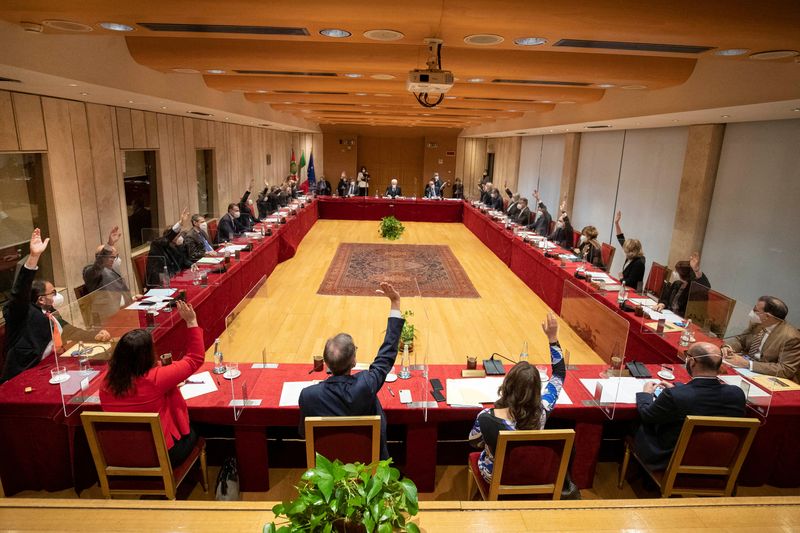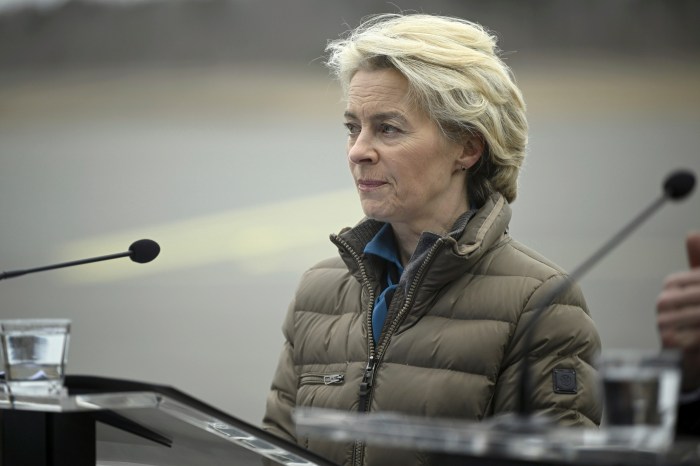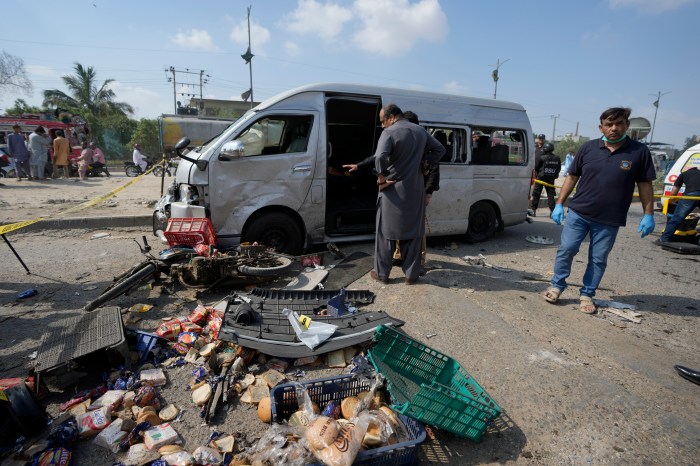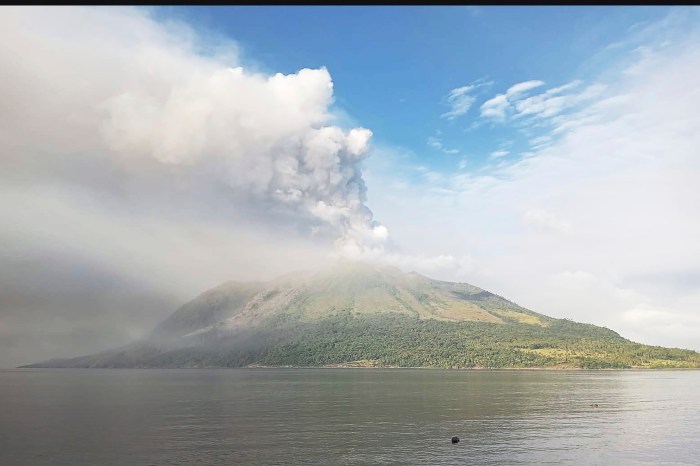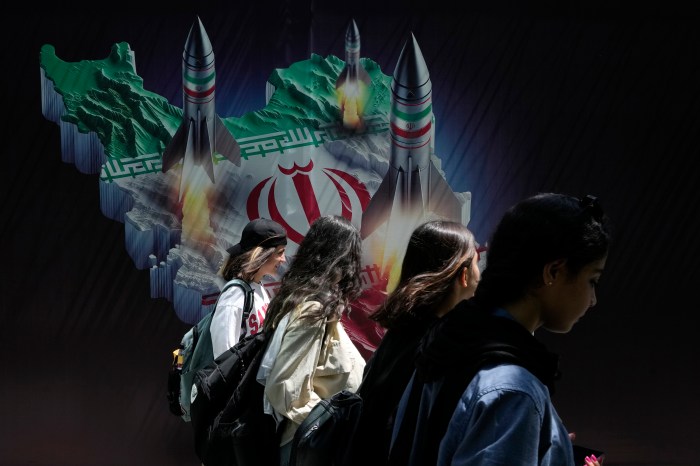ROME (Reuters) – The Italian parliament will convene on Jan. 24 to begin voting for a new head of state to replace the outgoing Sergio Mattarella.
The president is highly influential in Italy and is often called on to resolve political crises. The voting procedure is complex, with ballots cast in secret https://www.reuters.com/world/europe/italian-presidential-elections-shrouded-parliamentary-secrecy-2022-01-13, often making it difficult to predict the result. Here are some possible outcomes.
DRAGHI WINS
Prime Minister Mario Draghi has long been viewed as the favourite to win, with parties in his broad government rallying behind him in an effort to maintain political unity and prevent an unseemly scrap. Such a deal might emerge in the very first round of voting on Monday. Otherwise, support for Draghi might coalesce if the initial rounds of voting show that neither the centre-right nor centre-left blocs can present a candidate capable of winning a majority in the deeply divided parliament.
The parties are unlikely to throw their weight behind Draghi without first agreeing who might take his place as prime minister and without securing assurances that the legislature will continue, as scheduled, into 2023.
A COMPROMISE CANDIDATE IS FOUND
The parties might decide that Draghi must remain as prime minister to guarantee political stability for the final year of the legislature, and instead manage to build support for a compromise candidate who can appeal broadly to both centre-left and centre-right blocs. Many names have been floated in the media but no-one, as yet, has received a clear endorsement from any major party.
NO POLITICAL DEAL GIVES RISE TO DIVISIVE VOTE
If the two main blocs fail to agree on Draghi or on a compromise candidate, one of them might look to muster enough support to ram their own choice into the president’s palace. This would mean small parties, such as former prime minister Matteo Renzi’s Italia Viva group, would become decisive and could extract a high political price for their support. Draghi has already said such an outcome would almost certainly trigger the collapse of his coalition and mean the victors would likely have to try to piece together a new ruling majority. This would be complicated and could open the way to early elections.
STALEMATE PUTS PRESSURE ON CURRENT PRESIDENT
Mattarella, the outgoing president, has said he does not want another seven-year term. But if there is political stalemate, the party leaders might ask him to continue for a short while, perhaps using the COVID-19 crisis as an excuse. Under this scenario he would remain in office, in a de facto caretaker capacity until the end of the legislature, while Draghi would carry on as prime minister, guaranteeing a few more months of political stability.
Just such a scenario played out in 2013 when the then head of state, Giorgio Napolitano, reluctantly agreed to an unprecedented second term in office to end political deadlock. He stood down two years later. If Mattarella were to continue, it would be highly likely that Draghi would replace him early next year.
(Reporting by Crispian Balmer)

